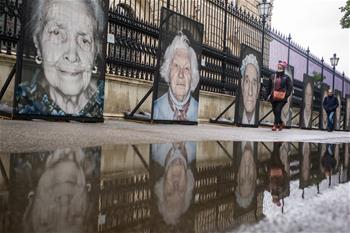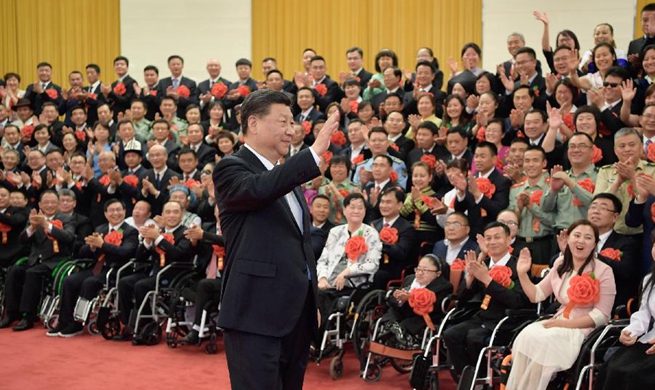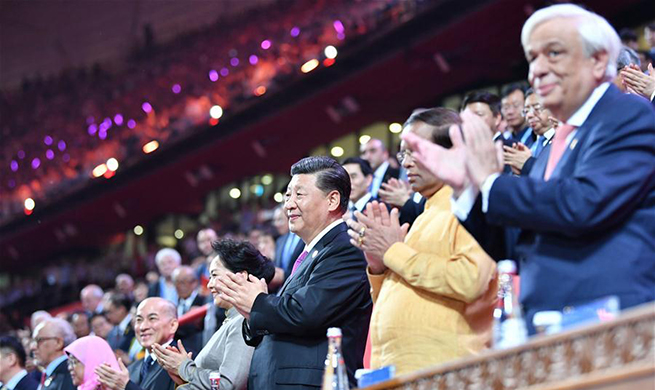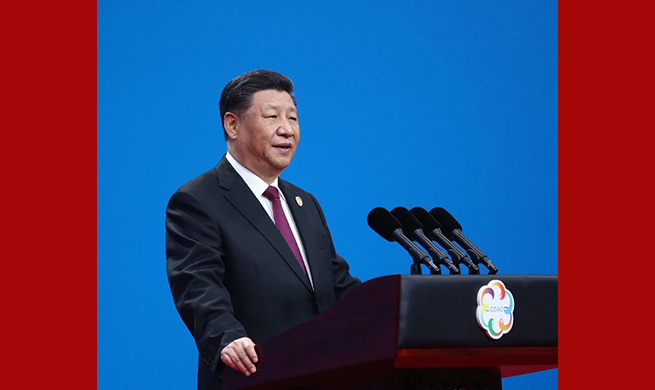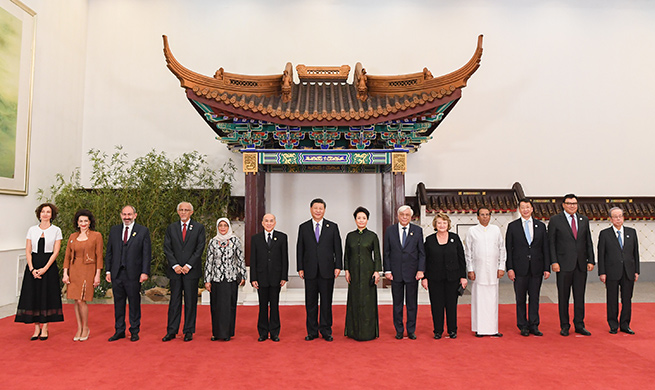KAMPALA, May 17 (Xinhua) -- Young and energetic, HIV/AIDS activists matched on the streets of the Ugandan capital Kampala on Friday in a public awareness campaign aimed at reducing new HIV infections.
The heavy rain downpour did not deter the youthful activists as they joined the rest of the world to commemorate the International AIDS Candlelight Memorial, which serves as a community mobilization campaign to raise social consciousness about HIV and AIDS.
The event was marked under the theme, "Empowering young people to champion the end of new HIV infections."
Abdul Nadduli, minister without portfolio, told reporters that Uganda is focusing on achieving the global target of ending AIDS as a public health threat by 2030.
The Joint United Nations Program on HIV/AIDS (UNAIDS) in 2016 set 90-90-90 targets. The first 90 aims at having 90 percent of people living with HIV knowing their status by 2020. The second 90 aims at having 90 percent of people who test positive to be enrolled on care and treatment. The third 90 aims at ensuring that all those on treatment achieve viral load suppression.
"Uganda's status for 90-90-90 is at 89-89-90 based on the ministry of health data for December 2018," the minister said, noting that in some socio-demographic groups such as women, these targets have been surpassed.
This success, according to Nadduli, is attributed to the country's Presidential Fast Track Initiative on ending AIDS, which was launched in 2017 by President Yoweri Museveni.
The country adopted Test and Start guidelines, which enables access to treatment with more efficacious drug combinations that have less side effects for all those who test HIV positive, he said.
However, there is still a lot of work needed, especially getting more men and young people to embrace testing and maximize the utilization of other available health services, he added.
Although the country has made efforts in fighting HIV/AIDS, the burden still remains high, said Nelson Musooba, Director General of Uganda AIDS Commission.
Government figures show that 1.3 million Ugandans are living with HIV, of which, 1.1 million have been enrolled on treatment.
The country has lost an estimated 2 million people to AIDS over the last three decades, according to the figures.


